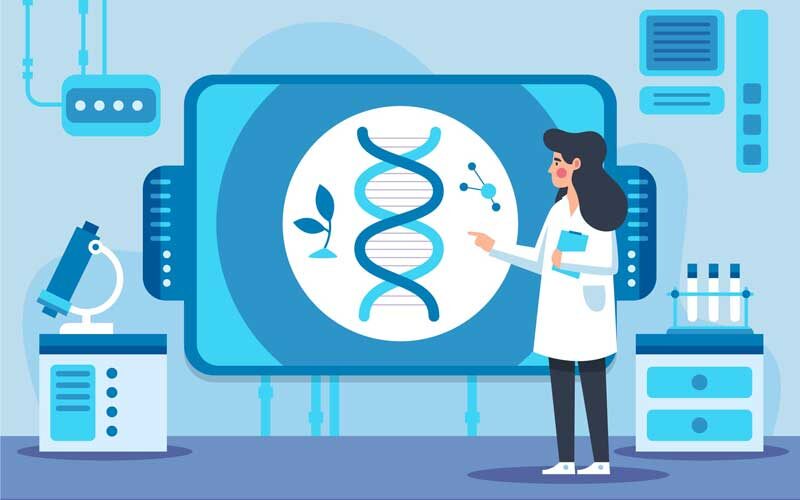Scientific progress has long been celebrated as a force for alleviating human suffering and promoting equality. Breakthroughs in genetic technology capable of curing diseases, extending life, and even surpassing the natural limitations of the human body are hailed as revolutionary achievements that promise a better future. But is technology truly neutral?
Recent advances in genetic analysis and editing have opened the door to a world where human life can be “designed”(Smith., 1995) from the fetal stage. Prospective parents can now eliminate genetic disorders and, potentially, enhance traits such as intelligence, physical appearance, and athletic ability. The concept of the so-called “designer baby(Ranpara., 2009)” is no longer confined to science fiction.
The troubling reality is that such technology is not equally available to all. Genetic engineering remains an extremely expensive process, accessible only to those with the financial means and the information resources to navigate the gray zone of legal and ethical regulation(Hagerty and Rubinov., 2019). In effect, these technologies are poised to become new biological privileges reserved for the elite, threatening to potentially reshaping society into a genetic caste system.
This article critically explores how fetal genetic modification, in the era of advanced analysis and engineering, may deepen social inequality and function as a tool for cementing biological advantages among the privileged.
1. Freedom to Design or Privilege to Select
The advent of genetic editing technologies has ushered in a new era in which the lives of unborn children can be planned and engineered. While initially developed to prevent heritable diseases, these tools now carry the potential to influence traits such as appearance, intelligence, and physical ability. Unsurprisingly, these high-tech interventions are prohibitively expensive, becoming premium services available only to the wealthy.
As a result, the ability to engineer one’s offspring is no longer a universally accessible right but a form of biological privilege restricted to a select few. From the very moment of birth, inequality is etched into one’s genetic makeup foreshadowing a society where social status may be determined less by merit and more by DNA.
2. From Meritocracy to Gene-ocracy
If children of affluent families begin life with superior genetic configurations, enhanced physical traits, higher cognitive capacities, and emotional stability, society could shift from a merit-based system to a “gene-democracy(Stammers., 2024).” In such a world, success would hinge not on effort or opportunity, but on the genetic lottery one is born into.
This trajectory risks legitimizing inequality by cloaking it in the guise of “natural outcomes.” Children born into less wealthy families might be perceived not as underachievers, but as genetically inferior, a view that could fundamentally erode the principles of human dignity and equality.
3. The Fusion of Genetic, Digital, and Financial Inequality
Digital and financial disparities persist as significant challenges in contemporary society. Adding genetic inequality to this mix introduces a new, deeply complex form of structural imbalance.
Wealthy parents could soon provide not only elite education and stable environments for their children, the public also superior genetic blueprints. In contrast, economically marginalized families may be forced to contend with preventable genetic disorders or developmental disabilities, reinforcing generational cycles of disadvantage. The gap between the “genetically advantaged” and the “genetically unprivileged” would not only persist but widen over time.
This shift represents more than individual inequality; it threatens to harden class divisions across generations, shaking the foundations of democratic values and social justice.
4. The Commercialization of Life and the Decline of Public Ethics
What was once a scientific endeavor for public good is rapidly transforming into a commercial service tailored to private desires. Genetic enhancement has become a matter of consumer choice, with the “quality” of a child determined by the financial means of the parents. Life itself is increasingly commodified, and the marketplace is redefining what it means to be human(Savulescu., 2001).
In this context, when public ethics are displaced by private market logic, the result is not merely an unequal society but an unethical one. Science may be advancing, but society is at risk of regressing into deeper division and discrimination.
Reclaiming the Ethics of Genetic Equality
Genetic engineering undoubtedly represents a major step forward in improving human health and longevity. But when such technology is applied within already unequal systems, it risks becoming a tool for elite entrenchment rather than public benefit. The prospect of designing human life from the fetal stage makes one’s future dependent not on personal choice or effort, but on parental wealth further entrenching social hierarchy.
The widening genetic gap could evolve into a new form of class politics, where inequality is biological and inherited. If left unchecked, the commercialization of genetic engineering may reduce life to a product and humanity to a stratified spectrum of “the engineered” and “the left behind.”
We now stand at a crossroads. Rather than focusing solely on technological progress, we must prioritize the establishment of ethical frameworks and public oversight. If genetic modification is to serve as a tool for a more equitable future, robust societal dialogue, equitable access, and institutional safeguards are imperative. Otherwise, we may find ourselves entering an age where inequality is no longer shaped by history or economics but by the genome itself.
Reference list
Hagerty, A. and Rubinov, I. (2019). Global AI Ethics: A Review of the Social Impacts and Ethical Implications of Artificial Intelligence. arXiv (Cornell University).
Ranpara, M. (2019). Designer babies. Canadian Medical Education Journal, 11(1). doi:https://doi.org/10.36834/cmej.68361.
Savulescu, J. (2001). Procreative Beneficence: Why We Should Select the Best Children. Bioethics, 15(5-6), pp.413–426. doi:https://doi.org/10.1111/1467-8519.00251.
Smith, C. (1995). The new genetic fusion science. Genetic Analysis: Biomolecular Engineering, 12(2), p.71. doi:https://doi.org/10.1016/1050-3862(95)00130-1.
Stammers, T. (2024). The Genetic Lottery: Why DNA Matters for Social Equality The Genetic Lottery: Why DNA Matters for Social Equality . By K athryn P aige H arden . Pp. 305. Princeton, NJ: Princeton University Press. 2022. £15.99 (pb). ISBN: 978-0691242101.. The new bioethics, pp.1–4. doi:https://doi.org/10.1080/20502877.2024.2331868.
